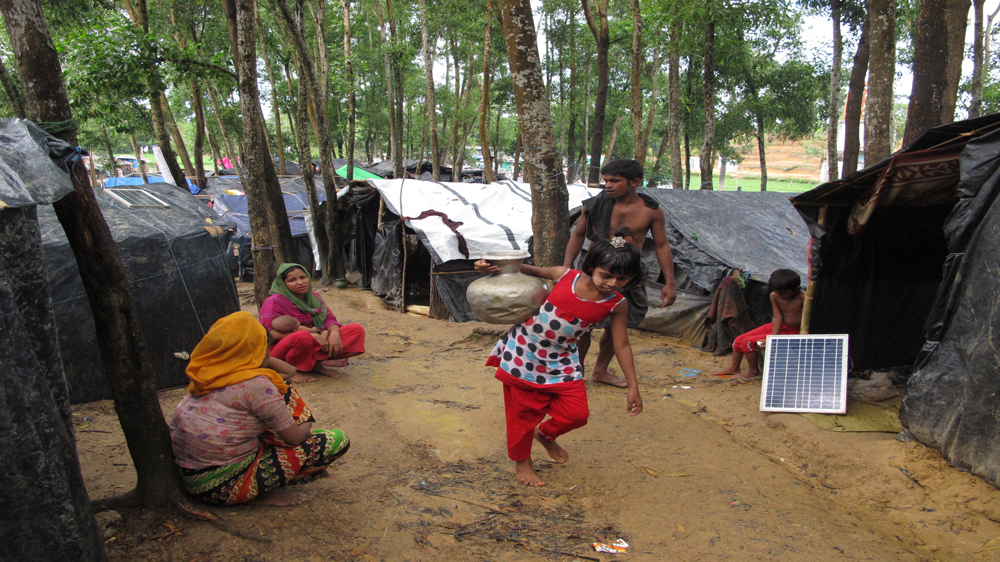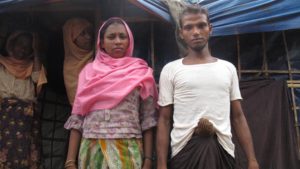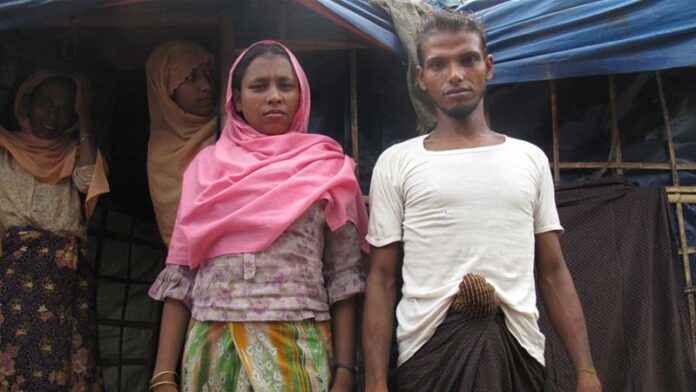Updated: 8:21am – Myanmar’s army killed many of the women they raped. Survivors in refugee camps in Bangladesh say they want justice.
Cox’s Bazar, Bangladesh – Twenty-year-old Ayesha Begum sat on a plastic mat inside her family’s bamboo and tarpaulin shelter in the sprawling makeshift refugee settlement of Balukhali.
She cradled her one-year-old son in her arms, blowing on his face every so often to give him some relief from the sweltering heat.
“I was raped just 13 days ago,” said the Rohingya refugee.
Ayesha, who arrived in Bangladesh less than a week ago, said she was eating dinner with her four sisters-in-law in their village of Tami in Myanmar’s Buthidaung Township when army troops attacked the hamlet. Soldiers entered their home and forced the women into a room.
They ripped Ayesha’s baby from her arms and kicked him “like a football”.

“I felt like they would kill me,” said Ayesha, her dark eyes alert. “I was afraid my child was dead,” she added, running a hand over his head.
Speaking in the presence of her mother, brother, sister and husband, with nothing but bamboo slats and plastic-sheet walls dividing them from their neighbours on either side, Ayesha said it took eight days to walk to Bangladesh.
While fleeing Myanmar, two of her sisters-in-law who had been raped with her died. “They were so weak they died,” she said.
For more than a month, the Myanmar army has waged a brutal military campaign in northern Rakhine state against the Rohingya– a Muslim-majority ethnic group to whom the Myanmar government denies citizenship and basic rights – after fighters with a Rohingya armed group carried out attacks on security forces on August 25.
The Myanmar army has carried out a number of such offensives since the 1970s, during which Rohingya have reported rapes, torture, arson and murder. The United Nations has called the latest military offensive ethnic cleansing.
More than 501,800 Rohingya have fled the Buddhist-majority country and crossed into Bangladesh since August 25. Densely populated refugee settlements have mushroomed around the arterial road in Bangladesh’s Cox’s Bazar district that borders Myanmar.
The refugees, the majority of whom are women and children, are in desperate need of humanitarian aid, including shelter, food, sanitation and medical care. Many women and girls were raped and sexually assaulted by Myanmar army soldiers.

“[Soldiers] entered our house and they took away our sister. She was very beautiful,” said Mohsina Begum, 20, also from Tami village. She said soldiers sexually assaulted and attempted to rape her until the village chairman intervened.
While Mohsina and her family were fleeing, they found the body of her 19-year-old sister, but couldn’t stop to bury her.
-Al Jazeera





























